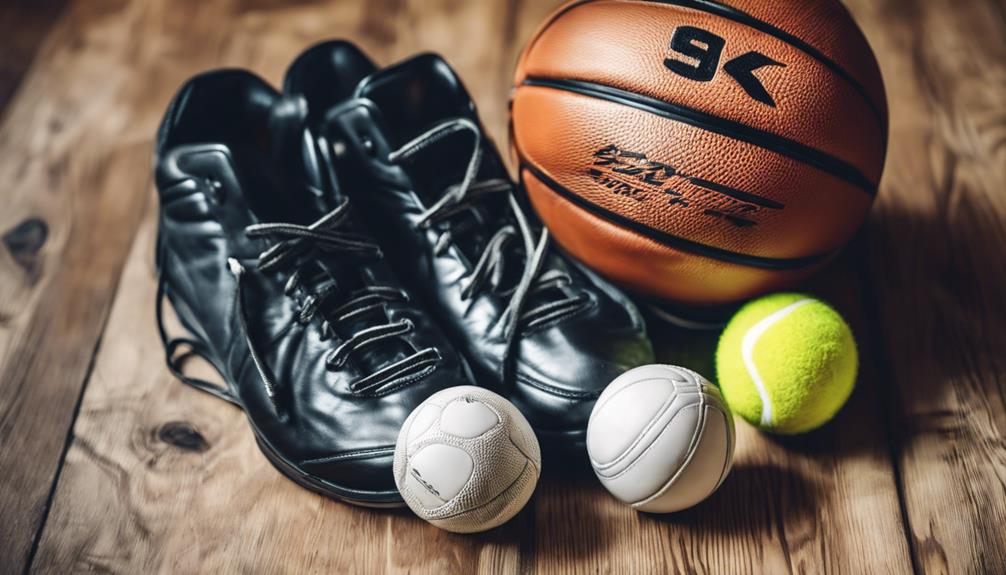Pronouncing words correctly is a fundamental skill in mastering any language, and English is no exception. Among the myriad of words that non-native speakers often struggle with, "exercise" stands out due to its common usage and distinct pronunciation. Understanding how to pronounce "exercise" correctly not only enhances communication but also boosts confidence when engaging in conversations. In this article, we will delve into the intricacies of pronouncing "exercise" and provide practical tips to help you articulate this word effortlessly.
Being able to pronounce "exercise" correctly is crucial. It is a term that encapsulates physical activity, wellness, and health—topics that are increasingly relevant in today’s fast-paced world. Mispronouncing such a commonly used word can lead to misunderstandings or distract from the message one is trying to convey. Correct pronunciation demonstrates a level of professionalism and attention to detail, which can significantly impact interpersonal interactions, especially in academic or fitness-related contexts.Will Social Security Pay For Home Health Care
Understanding the Importance of Proper Pronunciation
Proper pronunciation is essential, not just for clarity but also for credibility. When communicating in English, whether in a professional setting or casual conversation, how you pronounce words can influence others’ perceptions of you. Mispronouncing a word like "exercise" could lead listeners to question your language proficiency or even your knowledge of fitness topics. Therefore, mastering the pronunciation of common words can bolster both your confidence and your effectiveness in communication.
Moreover, pronunciation affects the rhythm and flow of speech. Correctly pronounced words help maintain the natural cadence of spoken English, making it easier for listeners to follow along. When words are pronounced incorrectly, it can create awkward pauses and disrupt the flow of conversation. This is particularly applicable in discussions around health and fitness, where clarity and precision are vital for conveying information effectively.
Common Mispronunciations of the Word "Exercise"
Despite its frequent use, "exercise" is often mispronounced in various ways. One of the most common errors is the misplacement of syllables, leading some to pronounce it as "excer-cise," rather than the correct three-syllable pronunciation: "ex-er-cise." Another frequent mispronunciation involves the vowel sounds, where non-native speakers may replace the short ‘e’ sound with a long ‘e’ sound, resulting in "ex-er-size," which alters its meaning entirely.
Additionally, some speakers tend to omit the second syllable altogether, saying "ex-cise," which is incorrect and can confuse listeners. These common mispronunciations highlight the importance of understanding the correct articulation of "exercise" in order to communicate effectively. Recognizing these errors is the first step toward improvement.
Breaking Down the Phonetics of "Exercise"
To accurately pronounce "exercise," it’s helpful to break it down phonetically. The International Phonetic Alphabet (IPA) representation of "exercise" is /ˈɛk.sɚ.saɪz/. The first syllable, "ex," is pronounced with a short ‘e’ sound, similar to the ‘e’ in "bed." The second syllable "er" features a schwa sound, which is often unstressed and sounds like a soft ‘uh’. The third syllable "cise" contains a long ‘i’ sound, as in "size."
Understanding these phonetic components allows you to articulate each part of the word clearly. By focusing on the individual sounds, you can gradually piece together the correct pronunciation. This method of breaking down words can be particularly beneficial for learners who are struggling with complex pronunciations in English.
Tips for Mastering the Pronunciation of "Exercise"
Mastering the pronunciation of "exercise" can be achieved through deliberate practice and repeated exposure. One effective tip is to listen closely to native speakers when they use the word. Paying attention to the nuances of their pronunciation can guide you in forming your own articulation. Additionally, try to mimic their intonation and rhythm. Repetition is key, so consider practicing the word aloud multiple times until it feels natural.
Another useful strategy is to record yourself saying "exercise" and then compare your pronunciation with that of native speakers. This method allows you to identify areas that need improvement and track your progress over time. By consciously focusing on the phonetic structure and practicing regularly, you will be on your way to mastering this essential word in English.
Practicing the Correct Emphasis in "Exercise"
In English, emphasis can change the meaning and clarity of words, and "exercise" is no different. The primary stress in "exercise" falls on the first syllable: "EX-er-cise." Placing the emphasis on the correct syllable is crucial for proper pronunciation. Incorrect stress can lead to confusion, particularly when discussing topics related to physical activity, where precision is important.
To practice proper emphasis, you can use techniques such as clapping or tapping your foot on the stressed syllable while pronouncing the word. This physical reminder can help you internalize the rhythm of the word. Consistent practice with an emphasis on the first syllable will facilitate a more confident and accurate pronunciation of "exercise."
Listening to Native Speakers: A Key to Learning
One of the most effective ways to enhance your pronunciation skills is by listening to native speakers. Exposure to authentic spoken English will help you attune your ear to the nuances and subtleties of the language. Platforms such as podcasts, YouTube videos, and language exchange programs can provide valuable opportunities to hear how native speakers articulate "exercise" in various contexts.
Additionally, consider using language learning apps that feature audio pronunciations by native speakers. These resources often allow you to slow down the audio, providing clarity for learners who may need extra time to grasp the pronunciation. Engaging with native speech regularly will not only improve your pronunciation but also expand your vocabulary and understanding of colloquial expressions.
Incorporating "Exercise" into Everyday Conversations
Once you feel confident in your pronunciation of "exercise," the next step is to incorporate it into everyday conversations. Using the word in context helps reinforce your learning and makes it easier to remember. Start by weaving "exercise" into discussions about health, fitness, or leisure activities. For example, you might say, "I enjoy getting outside for exercise on the weekends," or "Regular exercise is essential for maintaining good health."
Practicing this word in real-life situations will build your conversational skills and reinforce your pronunciation. Don’t shy away from discussing your own exercise routines or asking others about theirs, as these exchanges can further solidify your understanding and confidence in using the term correctly.
Resources for Improving Your English Pronunciation Skills
To continue enhancing your pronunciation skills beyond just "exercise," a wealth of resources is available. Online platforms such as Duolingo, Babbel, and Rosetta Stone offer courses specifically focused on pronunciation and speaking skills. These platforms often include interactive exercises, quizzes, and audio examples from native speakers.
Furthermore, consider joining local conversation clubs or online forums where you can practice speaking with others. Language exchange partnerships can be particularly beneficial, as they provide opportunities to engage in dialogue with native speakers who can offer immediate feedback. By utilizing these resources, you can expand your language abilities and refine your pronunciation over time.
In conclusion, mastering the pronunciation of "exercise" is an essential aspect of effective communication in English. By understanding its phonetic breakdown, practicing correct emphasis, and incorporating the word into everyday conversations, you can significantly improve your speaking skills. Remember that exposure to native speakers and utilizing various resources are key components of this learning journey. With dedication and practice, you’ll find that articulating "exercise" becomes second nature, allowing you to engage more confidently in discussions about health and fitness.


